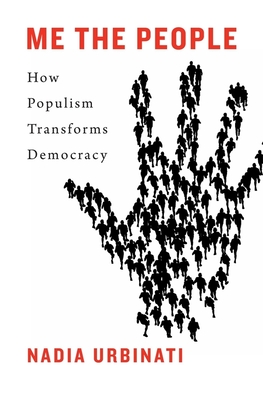Expedite your nonfiction book discovery process with Readara interviews, summaries and recommendations, Broaden your knowledge and gain insights from leading experts and scholars
In-depth, hour-long interviews with notable nonfiction authors, Gain new perspectives and ideas from the writer’s expertise and research, Valuable resource for readers and researchers
Optimize your book discovery process, Four-to eight-page summaries prepared by subject matter experts, Quickly review the book’s central messages and range of content
Books are handpicked covering a wide range of important categories and topics, Selected authors are subject experts, field professionals, or distinguished academics
Our editorial team includes books offering insights, unique views and researched-narratives in categories, Trade shows and book fairs, Book signings and in person author talks,Webinars and online events
Connect with editors and designers,Discover PR & marketing services providers, Source printers and related service providers

Me the People: How Populism Transforms Democracy
Political Science > Political Ideologies - Democracy
- Harvard University Press
- Hardcover
- 9780674240889
- 9.3 X 6.4 X 1.1 inches
- 1.2 pounds
- Political Science > Political Ideologies - Democracy
- (Single Author) Asian American
- English
Readara.com
Book Description
A timely and incisive assessment of what the success of populism means for democracy.
Populist movements have recently appeared in nearly every democracy around the world. Yet our grasp of this disruptive political phenomenon remains woefully inadequate. Politicians of all stripes appeal to the interests of the people, and every opposition party campaigns against the current establishment. What, then, distinguishes populism from run-of-the-mill democratic politics? And why should we be concerned by its rise?
In Me the People, Nadia Urbinati argues that populism should be regarded as a new form of representative government, one based on a direct relationship between the leader and those the leader defines as the good or right people. Populist leaders claim to speak to and for the people without the need for intermediaries--in particular, political parties and independent media--whom they blame for betraying the interests of the ordinary many. Urbinati shows that, while populist governments remain importantly distinct from dictatorial or fascist regimes, their dependence on the will of the leader, along with their willingness to exclude the interests of those deemed outside the bounds of the good or right people, stretches constitutional democracy to its limits and opens a pathway to authoritarianism.
Weaving together theoretical analysis, the history of political thought, and current affairs, Me the People presents an original and illuminating account of populism and its relation to democracy.
Author Bio
Nadia Urbinati (Ph.D., European University Institute, Florence, 1989) is a political theorist who specializes in modern and contemporary political thought and the democratic and anti-democratic traditions. She co-chaired the Columbia University Faculty Seminar on Political and Social Thought and was a co-editor with Andrew Arato of the academic journal Constellations: An International Journal of Critical and Democratic Theory. She is a member of the Executive Committee of the Foundation Reset Dialogues on Civilization and the Feltrinelli Foundation (Milan).
She has been a member of the School of Social Sciences of the Institute for Advanced Study, Princeton University, and a Laurance S. Rockefeller Visiting Fellowship in the University Center for Human Values, Princeton University. She is permanent visiting professor at the Scuola Superiore de Studi Universitari e Perfezionamento Sant'Anna of Pisa (Italy), and taught at Bocconi University (Milan), SciencesPo (Paris) and the University UNICAMP (Brazil).
She is the winner of the 2008-9 Lenfest/Columbia Distinguished Faculty Award. In 2008 the President of the Italian Republic awarded Professor Urbinati the Commendatore della Repubblica (Commander of the Italian Republic). In 2004 her book Mill on Democracy (cited below) received the David and Elaine Spitz Prize as the best book in liberal and democratic theory published in 2002. In 2020 her book Me the People (cited below) received the Capalbio International Prize.
Professor Urbinati is the author of Me The People: How Populism Transforms Democracy (Harvard University Press, 2019); The Tyranny of the Moderns (Yale University Press 2015); Democracy Disfigured: Opinion, Truth and the People (Harvard University Press, 2014); Representative Democracy: Principles and Genealogy (University of Chicago Press, 2006), and of Mill on Democracy: From the Athenian Polis to Representative Government (University of Chicago Press, 2002). She has edited Carlo Rosselli, Liberal Socialism (Princeton University Press, 1994); Piero Gobetti, On Liberal Revolution (Yale University Press,2002).
She co-edited several books, in particular: with Monique Canto-Sperber Le socialism libéral: Une anthologie; Europe-États-Unis (Éditions Esprit 2003); with Alex Zakaras, John Stuart Mill's Political Thought: A Bicentennial Reassessment (Cambridge University Press, 2007); with Stefano Recchia, A Cosmopolitanism of Nations: Giuseppe Mazzini's Writings on Democracy, Nation Building and International Relations (Princeton University Press, 2009); with Steven Lukes, Condorcet's Political Writing (Cambridge University Press, 2012); with Carlo Invernizzi-Accetti, Hans Kelsen’s On the Worth and Values of Democracy (Rowman & Littlefield, 2013); with Lisa Disch and Mathijs van de Sande, The Constructivism Turn in Political Representation (Edinburg University Press, 2019).
Professor Urbinati has published articles in numerous international scholarly journals and is a political columnist for Italian newspapers.
Source: Columbia University Political Science
Videos








Community reviews
No Community reviews

